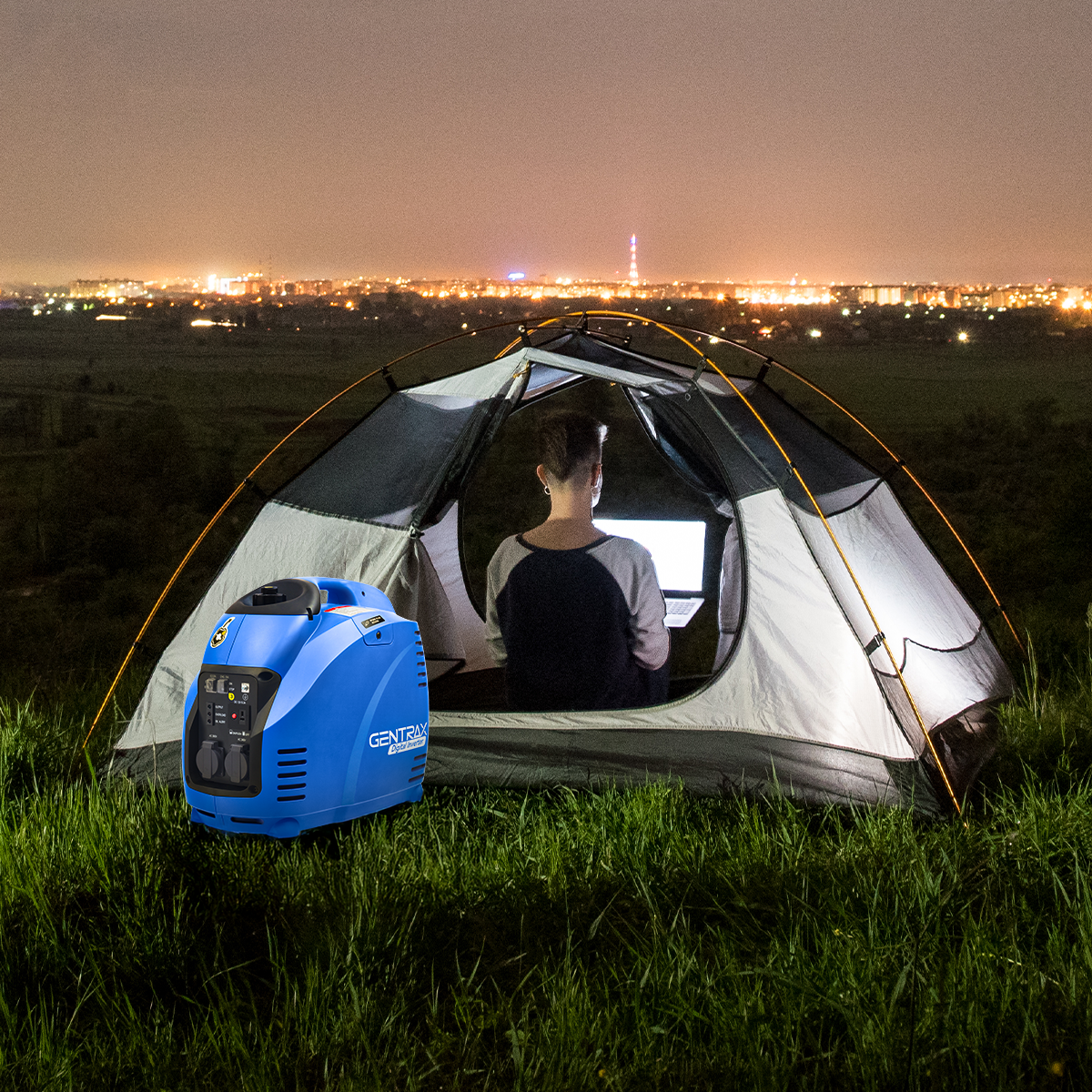Generators are indispensable when you need portable power, but let’s face it—many can be loud enough to rival a rock concert. The excessive noise not only interrupts the entire neighbourhood but can also even breach local noise ordinances. Thankfully, there are smart ways to a quieter generator operation—minimising the noise and keeping your peace.
Gentrax is a well-known generator brand, providing quiet, smart power solutions to Australian households and adventurers alike. In this guide, we’ll discuss simple generator noise reduction techniques for quieter, more comfortable power use.
Understanding Generator Noise
What makes a generator noisy in the first place? Several things, actually.
The combustion inside the engine, mechanical vibrations, exhaust system, and cooling fan—when combined, generate considerable sound pressure and engine clatter. This results in unpleasant noise pollution.
Typical generator decibel levels range from 60 dB to 90 dB. Anything over 70 dB is already considered disruptive in residential settings. This makes quiet generator operation a sought-after feature for campers, tradies, and homeowners.
Strategic Placement and Environmental Adjustments
Here are a few ways to reduce the noise from your generator:
Optimal Location
Repositioning a generator for less noise helps a lot. The best place to put a generator is farther away from your living or working area. Make use of natural barriers like hills, fences, or thick shrubs for sound deflection.
Soft Surfaces for Vibration Dampening
Vibrations amplify sounds. This is bad, especially when generators sit on hard surfaces. Learn how to dampen generator vibrations by placing it on grass or dirt. As much as possible, avoid concrete or asphalt. You may also use a generator anti-vibration mat or other sound absorption tools like rubber mounts and pads.
Enhancing Your Generator with Noise Reduction Accessories
You may also look up a few accessories to help with generator noise reduction.
Upgrading the Muffler/Exhaust System
Stock mufflers can be inefficient in quiet operation. Many users have succeeded with generator muffler upgrades in Australia. Upgrading to a high-performance generator silencer or custom exhaust systems can also help with exhaust noise reduction.
These not only reduce noise by significantly reducing sharp bursts or combustion but also improve overall performance.
Investing in Acoustic Enclosures or Soundproof Boxes
Another way to level up your quiet generator operation is by using a soundproof generator enclosure. These boxes, which can either be DIY-ed or commercially made, use sound-blocking materials like mass-loaded vinyl (MLV), acoustic foam, and plywood.
When done right, these soundproof boxes do help with sound insulation, but it’s important to keep proper airflow considerations in mind. Poor ventilation can compromise performance and safety. Make sure there’s still adequate airflow.
Advanced Techniques and Considerations
If all else fails, here are a few more things you can consider to help reduce noise.
Maintaining Your Generator
Neglect can turn even the best machine into a noisy mess. Servicing a noisy generator like performing an oil change, swapping spark plugs, and cleaning air filters can do wonders. Addressing loose parts or worn components that contribute to rattles and vibrations also helps reduce mechanical noise and maintain engine efficiency.
While often overlooked, generator maintenance for noise reduction does work. It helps keep things running quietly and smoothly.
Choosing a Quieter Generator Type
For a more solid and long-term solution, it’s ideal to upgrade to a quieter generator type. Inverter generator noise levels are significantly lower than traditional models. In fact, some of the best quiet generators in Australia are inverter types, like the ones by Gentrax.
These units are specifically designed for quiet generator operation, using enclosed bodies and variable throttles to keep portable generator noise low. Silent portable power options like battery-powered stations are also great for smaller power needs. They’re virtually noiseless, perfect for indoor use.
Enjoy the Power, Skip the Noise with Gentrax
Generator noise reduction is not that complicated. There are ways to make your generator quieter. Through smarter placement, vibration control, noise reduction accessories, and routine maintenance, you can have a better experience when using your generator.
You can also take it to the next level. If you’re ready for more peaceful power, explore our low-noise inverter generator models at Gentrax and experience the benefits of true quiet generator operation.
Frequently Asked Questions
Is there a way to make a generator quieter without buying a new one?
Yes, several methods can significantly reduce noise, including using anti-vibration mats, upgrading the muffler, building an acoustic enclosure, and optimising placement.
What is the quietest type of generator available in Australia?
Inverter generators are generally the quietest due to their advanced technology and enclosed design. Battery-powered portable power stations are also very quiet.
How much noise can a generator soundproof box reduce?
A well-constructed acoustic enclosure can reduce generator noise by 10-30 decibels (dB), depending on the materials and design, making a noticeable difference.
Are there any regulations on generator noise levels in Australia?
Yes, noise regulations vary by council and state in Australia. It’s advisable to check local bylaws regarding permissible noise levels and operating hours for generators, especially in residential areas.
Can I use a car muffler on my generator to make it quieter?
While some might attempt this, it’s generally not recommended. Car mufflers are designed for different exhaust systems and engine types, and using an unsuitable muffler can restrict airflow, cause overheating, and damage your generator. It’s best to use mufflers specifically designed for generators or consult a professional.
